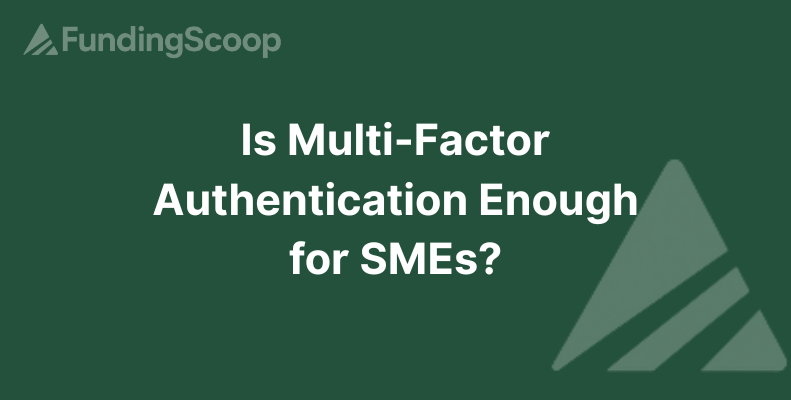
Is Multi-Factor Authentication Enough for SMEs?
Marcus Ashford
SMEs in the UK face growing cybersecurity challenges, with threats like ransomware and AI phishing on the rise. Although government initiatives are helping, SMEs must increasingly shoulder cybersecurity responsibilities. Multi-factor authentication isn't enough alone; a multi-layered approach including employee training, security audits, and AI tools is essential. Cybersecurity should be viewed as an ongoing process to safeguard business assets effectively.
Small to medium-sized enterprises (SMEs) in the UK face a myriad of challenges, with cybersecurity increasingly dominating concerns. As I've observed over the years, the digital threats are escalating, making it vital to assess whether existing measures like multi-factor authentication (MFA) are truly sufficient.
Understanding the Threat Landscape
Ransomware attacks have become a daunting concern for businesses. According to a recent NCSC report, these attacks often target entities that might not have the resources to mount a robust defense. Attackers encrypt important data, demanding hefty ransoms for its release. This method of attack caught global attention when an NHS hospital trust had to cancel operations as systems went offline.
AI phishing represents another formidable threat, leveraging sophisticated algorithms to impersonate trusted contacts convincingly. The integration of AI into phishing attacks has significantly increased their success rate, presenting SMEs with a more subtle yet equally destructive challenge.
Government and Institutional Responses
The UK government and cybersecurity institutions are actively fighting these digital crimes. Resources like the UK's global initiatives to halt ransomware demonstrate significant progress but underline the necessity for ongoing vigilance.
Despite these efforts, the onus remains largely on SMEs to protect themselves, often with limited budgets. Many businesses find it challenging to integrate comprehensive cybersecurity solutions without straining their finances.
My Take
Relying solely on MFA is akin to locking your front door but leaving windows wide open. While MFA provides an additional layer of security, it is far from foolproof. In my conversations with cybersecurity experts, echoing their sentiment, I've come to understand that a multi-layered strategy is essential.
Training employees to recognize phishing attempts, conducting regular security audits, and employing AI-driven defensive tools are critical. Moreover, preparedness extends beyond prevention; businesses must have a recovery plan in place to swiftly handle breaches when they occur.
The uncomfortable truth is that cybersecurity is an ongoing journey rather than a destination. I urge SMEs not merely to comply with best practices but to innovate around them. By fostering a culture of cybersecurity awareness and resilience, businesses can better safeguard their assets.
Ultimately, while MFA forms an essential component of a security strategy, it must be part of a broader, robust cybersecurity framework. The stakes are simply too high to settle for anything less than comprehensive protection.


